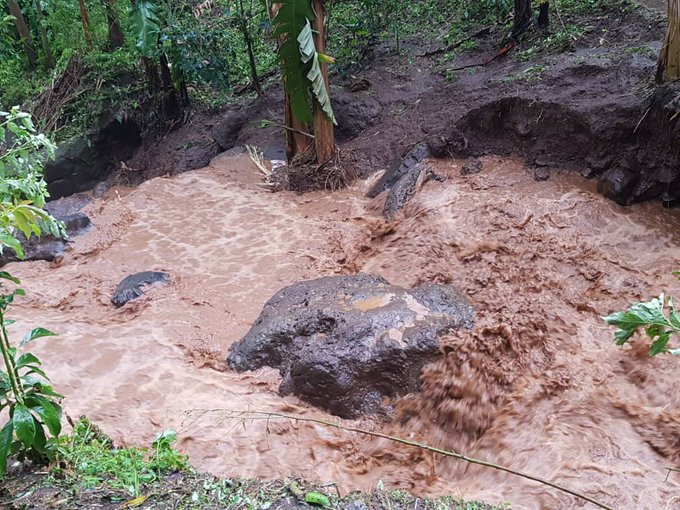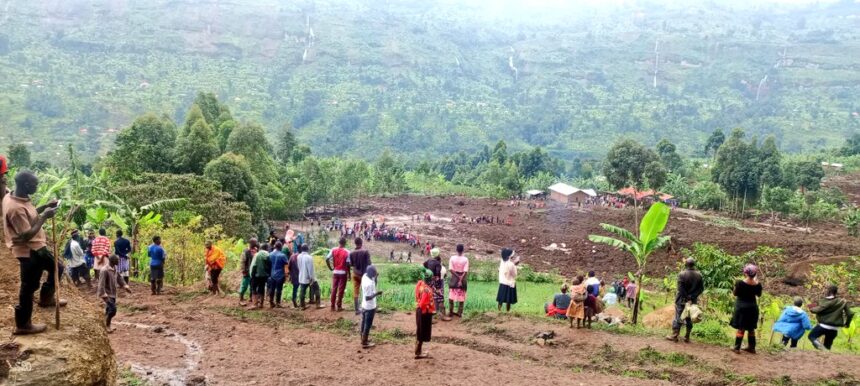The death toll from the devastating landslide in Bulambuli District has reached 22, with rescue efforts ongoing as officials and families cling to the hope of finding survivors amidst the rubble.
As the region mourns, the tragedy highlights the urgent need for disaster preparedness, sustainable resettlement plans, and stricter enforcement to prevent residents from returning to high-risk areas.
The tragic landslide in Bulambuli District has claimed 22 lives, police spokesman Rusoke Kituuma confirmed. Rescue teams recovered 21 bodies from the debris, and one critically injured victim succumbed over the weekend at a local hospital.

Triggered by heavy rains last week, the landslide displaced dozens of families, leaving behind a trail of destruction and sorrow. Survivors, now grappling with the loss of loved ones and homes, have sought refuge in temporary shelters provided by local authorities and humanitarian agencies.
State Minister for Disaster Preparedness, Lillian Aber, visited the affected area, offering condolences and pledging government support. “We cannot stop disasters, but we can take measures to reduce their impact and help communities recover more effectively,” Aber stated during her address.

The government has announced a relief package, including 17 million shillings and two acres of land for each displaced family, to aid in resettlement. However, Aber emphasized the importance of avoiding high-risk areas, warning of legal repercussions for those attempting to return.
While immediate relief efforts are underway, experts have pointed to the need for proactive measures, such as reforestation and improved land-use planning, to mitigate the risks of future disasters in the region.
As rescue efforts continue, the focus has shifted to providing psychological and material support to survivors while ensuring the long-term safety and sustainability of resettlement programs. For many in Bulambuli, the scars left by this tragedy will take years to heal.








